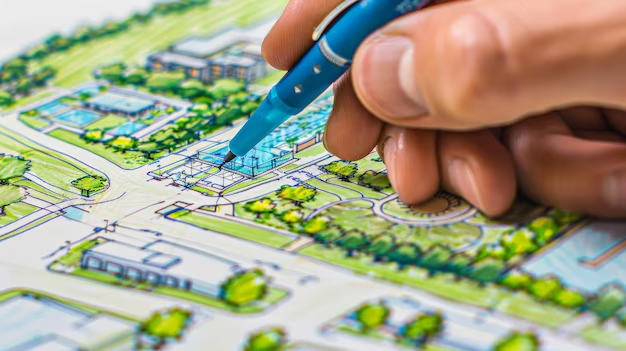J&K Chief Minister Calls for Adoption of Urban Planning Strategies to Modernise Development
Jammu and Kashmir (J&K) is set to undergo significant transformation with the adoption of modern urban planning strategies. At a meeting held on January 16, 2025, Chief Minister Omar Abdullah emphasised the need for strategic urban development to ensure the region’s cities evolve in an organised, sustainable, and future-ready manner. The meeting focused on reviewing urban planning schemes and policies that aim to create a more robust and planned urban infrastructure, aligned with modern needs.
Abdullah urged the Housing and Urban Development Department to take immediate steps to implement several progressive urban-planning strategies, particularly focusing on land pooling, Transferable Development Rights (TDR), and Transit-Oriented Development (TOD). These strategies are designed to create more coordinated and efficient urban growth, which will contribute to improved living standards and economic prosperity for the region. Land pooling, a key initiative under the discussion, is a process where multiple landowners collaborate to pool their land together for development projects. This collective approach helps in overcoming the constraints of fragmented land holdings and facilitates the creation of better infrastructure. Abdullah emphasised that land pooling should not only enhance infrastructure but also increase land values for the participating landowners. The urban authorities would allocate sufficient space for roads, parks, and public amenities, while the remaining land would be fairly redistributed among the original landowners.
This model, according to the Chief Minister, offers a sustainable and equitable alternative to traditional land acquisition methods. It enables developers to contribute to the creation of planned urban spaces while also benefiting from a more organised layout and greater infrastructure development. The meeting also delved into the Transferable Development Rights (TDR) scheme, which allows developers or landowners to sell or trade development rights for land surrendered for public purposes, such as road widening or heritage conservation. The TDR system ensures that landowners receive compensation for surrendering land for public good, which can be used for further development on their remaining properties or sold to other developers in need of additional buildable space.
This policy aims to balance heritage preservation with urban expansion, allowing cities to grow sustainably while safeguarding cultural and historical assets. Abdullah noted that the use of TDR could help in the development of congested areas by enabling developers to build higher than the usual Floor Area Ratio (FAR) regulations, further encouraging efficient use of space in urban regions. Another significant topic of discussion was Transit-Oriented Development (TOD), which promotes high-density development around transit stations. This strategy encourages walkable urban spaces near public transport hubs, reducing dependency on personal vehicles and improving overall urban mobility. Abdullah emphasised that TOD would be critical in transforming J&K’s cities into sustainable, well-connected urban centres. By integrating residential, commercial, and recreational spaces near transit stations, TOD would contribute to the reduction of traffic congestion and the creation of vibrant, sustainable communities.
The meeting also addressed the importance of collaboration between various stakeholders, including local authorities, developers, and landowners, to ensure the successful implementation of these urban-planning strategies. Abdullah stressed the role of urban governance agencies in facilitating development while maintaining a balance between growth and sustainability. Additionally, the discussion covered the proposed Integrated Solid Waste Management (ISWM) services across J&K, which will help municipalities handle waste more effectively through Public-Private Partnerships (PPP). These initiatives are aimed at improving waste disposal systems, road cleaning, and the management of water bodies, contributing to a cleaner and more sustainable urban environment.
As J&K continues to grow, Abdullah’s call for the adoption of forward-thinking urban planning strategies offers hope for a more organised and sustainable urban future. The implementation of land pooling, TDR, and TOD, along with the improvement of waste management systems, will be pivotal in creating a modern infrastructure that meets the needs of J&K’s expanding urban population. The Chief Minister’s vision for J&K is one of transformation—where urban development is harmonised with the needs of residents, ensuring that cities are both livable and sustainable for future generations. As these urban-planning policies begin to take shape, they will play a crucial role in reshaping the urban fabric of Jammu and Kashmir, turning it into a model of planned, sustainable development. Adopting these urban-planning strategies will enable J&K to achieve a balanced, efficient, and future-proof urban landscape, fostering economic growth and improving quality of life for its citizens.


